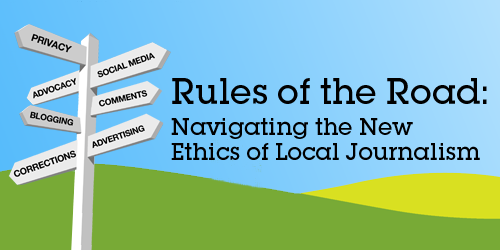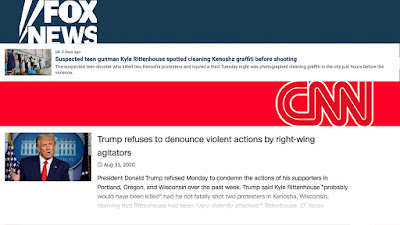Shel Burton
shelbyakai@gmail.com
There's an unspoken contract between the news and the people who consume it. The news provides a necessary public service, informs people of natural disasters, health crises, weather, important political events and movements, and so on. As a result, media consumers can appropriately vote, plan their day, support important causes, and generally know what's going on as informed citizens.
As much as the stress of daily news weighs on a person, staying informed ultimately serves a greater good. Making them a better neighbor, more empathetic, and more open-minded, according to Maggie Rugolo from Buchanan Public Relations. Wanting to be better for ourselves and humankind is something that is taught and is ingrained in most people's actions. The news informs a decision, the decision is made, and, hopefully, society profits from it.
However, the people have the power to change the laws or, in this case, the ethics of journalism when they feel it isn't serving their interests. Similarly, journalists have built their ethics around serving people and doing the most good while balancing the need for information, according to the Society of Professional Journalism Code of Ethics. This contract is only metaphorical and built on the basis of American democracy.
But what happens when this contract breaks down?
Well, you're watching it happen right now.
Trust in the media is dismally low across the board. "The media," a name which has had negative connotations for decades, stirs up a lot of feelings from journalists, politicians, and the everyday audience. Whether it's perceived greediness, lack of efficacy, bias, or an overall sense of corruption, there's an outcry demanding better. Audiences are asking for transparency from their news outlets. However, "better" and "transparency," while clear on paper or in a tweet, becomes less clear in real life.
As news media changes, creating niches for every kind of audience, the contract that was once a certainty between the people and the press, becomes a wild frontier. TV news competes with online news, late-night talk shows are mistaken for news rather than entertainment, there are conservative news outlets for conservatives and liberal news outlets for liberals. All of them share the goal of informing people, however, the rules have changed to stay afloat in this have-it-your-way world.
Unfortunately, journalists are at the crux of this issue as servants of the people and the creators of news content. That's not to say all of the blame should be placed on the consumer, but the divide does more to destroy the contract than heal it.
It's a difficult situation that includes more details than this post could cover. To build trust journalists, editors, and their higher-ups have to be more transparent about their information, who they're biased towards, and why. The audience also has to believe that their news is telling them the truth. It's a contract, one that news outlets and the audiences desperately need to abide by.

















